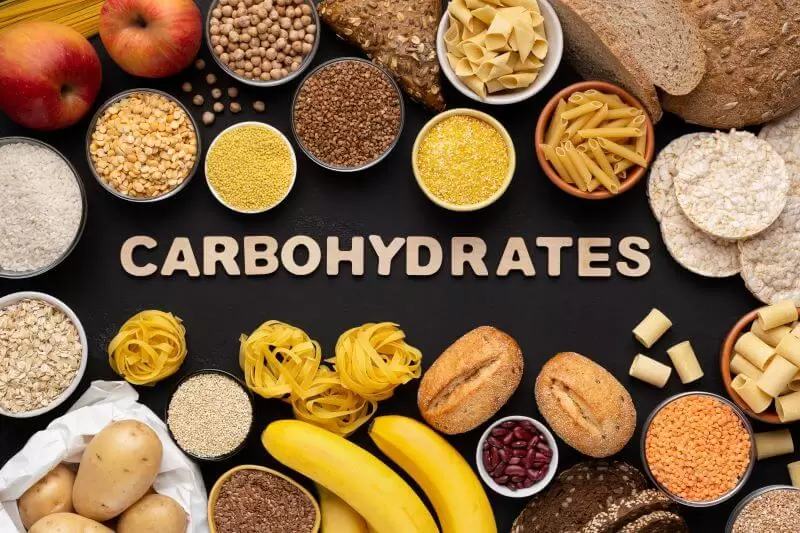In today’s information-saturated world, nutrition advice comes from countless sources—social media influencers, well-meaning friends, and even some health professionals who perpetuate outdated beliefs. With conflicting reports emerging regularly, it’s become increasingly difficult to distinguish between evidence-based nutrition science and persistent myths that refuse to die.
The proliferation of misinformation has created a world where people make dietary decisions based on fear rather than facts. From demonizing entire food groups to promoting expensive supplements as miracle cures, these myths can lead to restrictive eating patterns, nutritional deficiencies, and unnecessary anxiety around food choices. The consequences extend beyond individual health—they shape public perception and influence policy decisions that affect entire populations.
Understanding the truth behind common nutrition myths isn’t just about making better food choices; it’s about developing a healthier relationship with food itself. When we base our eating habits on scientific evidence rather than marketing claims or outdated research, we can enjoy a more balanced, sustainable approach to nutrition that supports both physical and mental well-being.
This comprehensive guide examines the most persistent nutrition myths circulating today, providing you with evidence-based facts to make informed dietary decisions. By debunking these misconceptions, you’ll gain the knowledge needed to navigate the complex world of nutrition with confidence and clarity.
Myth 1: All Carbohydrates Are Bad for You

The demonization of carbohydrates represents one of the most damaging nutrition myths of our time. This misconception stems from the popularity of low-carb diet trends that have persisted for decades, giving all carbohydrates an undeserved bad reputation.
The Reality About Carbohydrates
Carbohydrates serve as the body’s primary energy source, particularly crucial for brain function, muscle movement, and daily activities. When consumed, carbohydrates break down into glucose, which fuels our cells and supports optimal bodily functions. Without adequate carbohydrates, the body struggles to perform at its best.
The key lies in understanding that not all carbohydrates are created equal. While refined carbohydrates like white bread, sugary snacks, and sodas can contribute to blood sugar spikes and weight gain, complex carbohydrates provide sustained energy and essential nutrients.
Smart Carbohydrate Choices
Focus on incorporating these nutrient-dense carbohydrate sources:
-
Whole grains such as quinoa, brown rice, and oats, which provide fiber for digestive health
-
Vegetables, including sweet potatoes, peas, and leafy greens packed with vitamins and antioxidants
-
Fruits that offer natural sweetness along with fiber and essential nutrients
Research demonstrates that individuals consuming higher percentages of calories from whole grains have lower risks of obesity, type 2 diabetes, and heart disease. Instead of eliminating carbohydrates entirely, focus on choosing quality sources that support your health goals.
Myth 2: Eating Fat Makes You Fat
The fat-free diet trend of the 1980s and 1990s created lasting misconceptions about dietary fats, leading many people to avoid this essential macronutrient. This myth persists despite overwhelming scientific evidence supporting the importance of healthy fats in our diet.
Essential Functions of Dietary Fat
Fats perform numerous vital functions in the body, including protecting organs, maintaining cell membranes, promoting growth and development, and facilitating the absorption of fat-soluble vitamins. Rather than causing weight gain, healthy fats can actually support weight management by promoting satiety and reducing overeating.
Distinguishing Between Fat Types
Understanding the difference between fat types is crucial for making informed choices:
Healthy Fats to Embrace:
-
Monounsaturated fats are found in olive oil, avocados, and nuts.
-
Polyunsaturated fats are present in fatty fish, seeds, and vegetable oils.
-
Omega-3 fatty acids from salmon, walnuts, and flaxseeds.
Fats to Limit:
-
Saturated fats from fatty meats and high-fat dairy products.
-
Trans fats are found in processed foods and some animal products.
Incorporating moderate amounts of healthy fats into your diet supports heart health, brain function, and hormone production while helping you feel satisfied after meals.
Myth 3: Eggs Raise Your Cholesterol Dangerously

For decades, eggs were vilified due to their cholesterol content, with many people avoiding this nutritious food entirely. This myth has been thoroughly debunked by modern research, yet it continues to influence dietary choices.
The Scientific Truth About Eggs
Current research demonstrates that dietary cholesterol has minimal impact on blood cholesterol levels for most people. The cholesterol found in food doesn’t directly translate to increased cholesterol in your bloodstream, as your body regulates cholesterol production based on dietary intake.
Eggs are actually nutritional powerhouses, providing high-quality protein, essential vitamins, and healthy fats. The American Heart Association suggests that one egg (or two egg whites) per day can be part of a healthy diet for most individuals.
Nutritional Benefits of Eggs
Eggs offer numerous health benefits:
-
Complete protein containing all essential amino acids
-
Choline for brain health and development
-
Lutein and zeaxanthin for eye health
-
B vitamins for energy metabolism
Unless you have specific risk factors for heart disease or have been advised otherwise by your healthcare provider, moderate egg consumption poses no health risks and can contribute valuable nutrients to your diet.
Myth 4: Dairy Products Are Inherently Fattening and Unhealthy
The misconception that all dairy products lead to weight gain has caused many people to eliminate this important food group from their diets unnecessarily. This myth fails to consider the nutritional benefits and variety within the dairy category.
Nutritional Value of Dairy
Dairy products provide essential nutrients that support health:
-
High-quality protein for muscle building and organ function
-
Calcium for bone strength and density
-
Vitamin D (in fortified products) for calcium absorption
-
Probiotics (in yogurt) for digestive health
Making Smart Dairy Choices
The key to including dairy in a healthy diet lies in choosing appropriate options:
-
Select fat-free or low-fat versions to reduce calorie content.
-
Choose plain yogurt over sweetened varieties.
-
Consider fortified plant-based alternatives if lactose-intolerant
-
Aim for three servings daily as part of a balanced eating plan
Research supports that dairy consumption, when part of a balanced diet, doesn’t inherently cause weight gain and can contribute to nutritional adequacy.
Myth 5: Natural Sugars Are Significantly Healthier Than Refined Sugar

The belief that honey, maple syrup, and coconut sugar are dramatically healthier alternatives to white sugar represents another persistent nutrition myth. While these alternatives may sound more appealing, the reality is more nuanced.
The Truth About Sugar Types
All sugars, whether refined or unrefined, have similar effects on blood glucose levels and contribute to your daily added sugar intake. While unrefined sugars may contain trace amounts of vitamins and minerals, these quantities are negligible and don’t provide significant nutritional benefits.
Practical Sugar Guidelines
Regardless of the source, all added sugars should be consumed in moderation:
-
Limit added sugars to less than 10% of daily calories.
-
Focus on naturally occurring sugars in whole fruits.
-
Read labels carefully to identify hidden sugars.
-
Use all sweeteners sparingly, whether refined or unrefined
The advantage of choosing less processed sugars lies primarily in their more complex flavors rather than substantial nutritional superiority.
Myth 6: Vegetarian Diets Automatically Lead to Weight Loss and Better Health
While plant-based eating patterns can offer health benefits, the assumption that simply “going vegetarian” guarantees weight loss and improved health is misleading. The quality of food choices matters more than the presence or absence of animal products.
The Reality of Vegetarian Eating
Vegetarian diets can support health when well-planned, but they can also lead to weight gain if they include excessive amounts of processed foods, refined carbohydrates, and high-calorie plant-based options. Some vegetarians may consume large quantities of sugary, fatty, or calorie-dense foods while avoiding animal products.
Keys to Healthy Vegetarian Eating
Successful vegetarian nutrition requires attention to:
-
Protein variety from legumes, nuts, seeds, and whole grains
-
Nutrient density rather than just calorie restriction
-
Balanced macronutrients, including healthy fats and complex carbohydrates
-
Essential nutrients like vitamin B12, iron, and omega-3 fatty acids
Both vegetarian and omnivorous diets can be healthy when they emphasize whole foods, appropriate portions, and nutritional balance.

